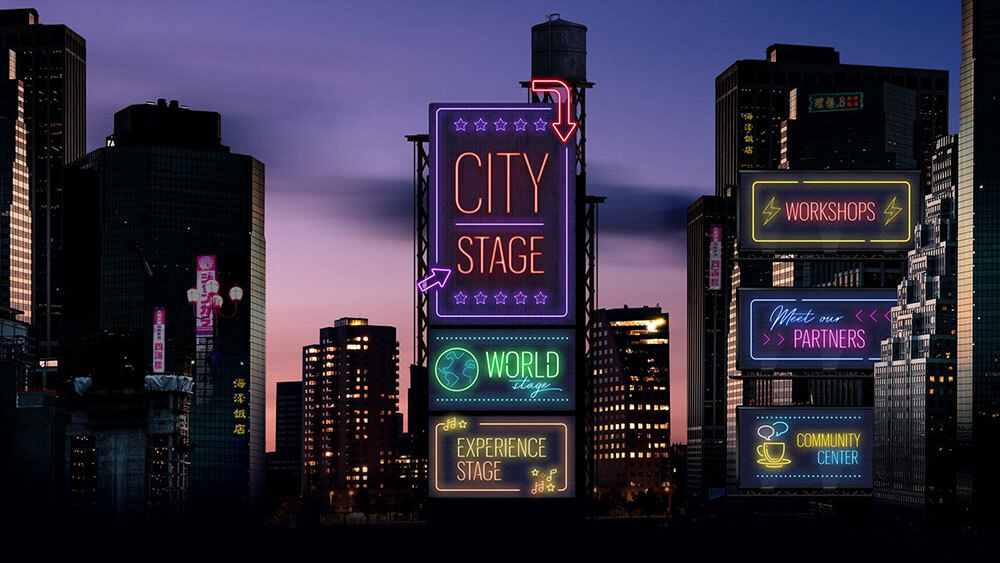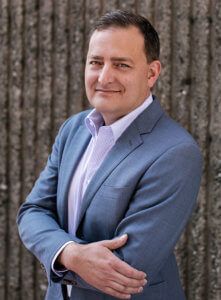
The WRLDCTY festival will broadcast 30 panels and discussions on three stages from venues in five host cities — New York City, London, Hong Kong, Los Angeles, and Toronto.
This Thursday, Resonance Consultancy will kick off WRLDCTY, a new virtual event billed as the world’s largest virtual cities festival. With the aim of providing a stage for a global conversation on the future of cities, Chris Fair, president and CEO of Resonance, and his team have packed the three-day schedule with talks from more than 150 thought leaders in urban design, place making, tourism, culture, and several other overlapping fields.
The program, running Oct. 22-24, will be split up into three stages — City, World, and Experience — and will feature talks and panels along with virtual travel experiences, including a wine tasting in Cape Town, South Africa, and a burlesque performance in Brooklyn, New York. Read on below for more insight from Fair on how the content — and the hybrid event’s format — will provide insights to the business events industry.

“Ideas, creativity comes from connecting [with] people who don’t usually talk to each other. This is a moment in time for all of us, regardless of what sector we’re in… to have those conversations,” said Chris Fair, president and CEO of Resonance Consultancy, which will announce the 2021 annual ranking of the world’s best cities at WRLDCTY.
My goal, at the start, was to have 100 conversations around all of these various topics that will hopefully spark another 100 conversations that will lead to solutions, answers, and ideas. Whether that’s confronting racism, whether that’s confronting economic inequality, whether that’s discussing the future of meetings and events — what is the innovation? How do we rethink urban travel and not go back to overtourism in the future? People want to do something, they just don’t know what to do. And I don’t think we have all the answers, but the answers to these questions start with conversations.
What’s different about this virtual event?
Participating in something like this as an industry stakeholder, it’s a little bit like a living lab for us to look at and think about what works and what doesn’t work. We thought [about] and created the infrastructure for this event as a model of what a hybrid event could look like.
We don’t believe that virtual events will replace in-person events. In fact, if anything, I think this experience taught us that people crave events — not so much for the content, which there’s [plenty] of — but for the connection that comes from being there in person. We may come out of this valuing in-person events more than ever before.
What are the sessions you’re excited about — especially those that relate to the meetings industry?
I’m excited to have a conversation with Joe Pine [during “The Future of the Experience Economy” session at 2 p.m. EST on Oct. 22] about how the experience economy evolved over the last 20 years since Joe wrote the book [The Experience Economy: Work Is Theater & Every Business a Stage] that we’re all familiar with. Do we just go back to that, or is it something different? I think we both think that there is an evolution of what the experience economy looks like coming out of this crisis … particularly as it relates to meetings, events, travel, and tourism.
But we can see this evolving into something where there are 1,000 people in London, 1,000 thousand in Toronto, 1,000 in L.A., and 1,000 in Hong Kong or Singapore that are connected together over the course of the week, having a shared experience, shared connections in-person but also virtually. So, this is not just an opportunity to digest all of this content — it’s also a springboard to think about what the future of meetings and events and conferences might look like.
General admission, which includes limited access, is free. The all-access Pro Pass ticket, about $125 including fees, will both include live and on-demand access to keynote talks on the World Stage plus opportunities to network and chat with other attendees. For more information, visit wrldcty.com.
Jennifer N. Dienst is managing editor at Convene.
